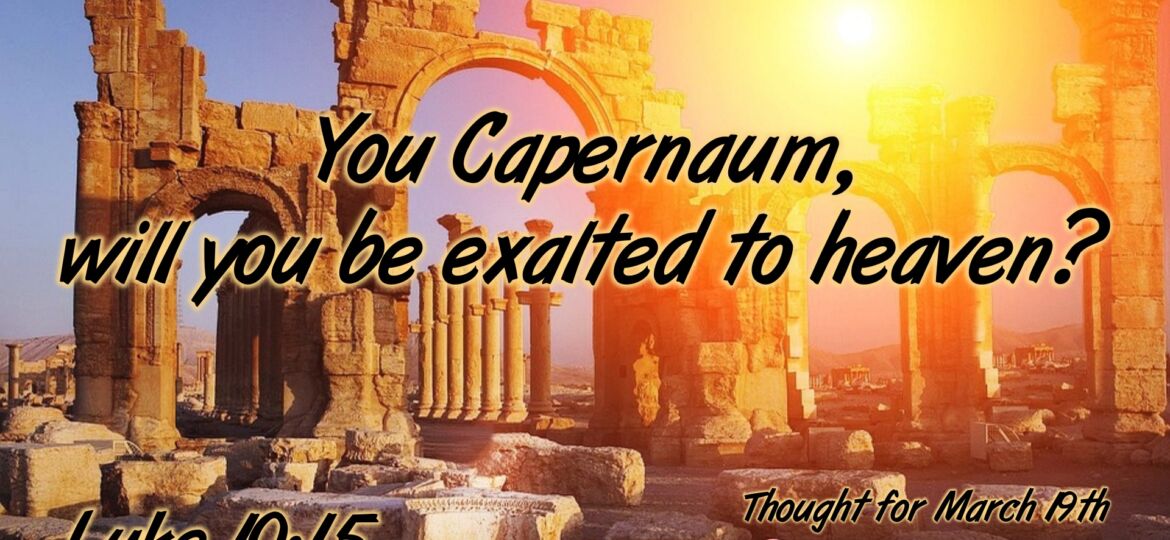The 2nd chapter of Proverbs is one of the most thought provoking in the entire book. Meditate on the sequence of ‘ifs’ in the first 4 verses. “IF you receive my words … IF you call out for insight and … understanding …. IF you seek it like silver and search for it … then you will find …” What will you find if you have tried to do this? The answer in v.5 is, “then you will understand the fear of the LORD and find the knowledge of God.” That is, experience a state of awe in your mind as you start to grasp the enormity of what the Creator must be in his existence and actions! This is far different from an academic understanding of the nature of God, even from a scriptural perspective. A truly seeking person must develop “the knowledge of God,” that is, a knowing insight into what God is – it is ‘seeing’ and as a result possessing an overwhelming vision of that which overwhelms normal human thinking.
When the LORD first spoke to Job, after all Job’s reasoning with his friends, God says, “Who is this that darkens counsel by words without knowledge?” [38 v.2] It is the “knowledge” Solomon is speaking of in our Proverbs reading. Job confesses, “I have uttered what I did not understand, things to wonderful for me, which I did not know … but now mine eye sees you” [42 v.3, 5] Notice how Paul expresses it; “having the eyes of our hearts enlightened that you may know …” [Eph. 1 v.18] So, in our Proverbs chapter Solomon wants us to experience the awe of seeing God and then to be ready to grasp the relationship we can have with God, as Job ultimately did!
We read “the LORD gives wisdom; from his mouth come knowledge and understanding … he is a shield to those who walk in integrity … watching over the way of his saints” [v.6,8]
So, if we seek in this way then “wisdom will come into your heart, and knowledge will be pleasant to your soul”[v.10]; furthermore, “ … understanding will guard you, delivering you from the way of evil, from men (and women) of perverted speech … who rejoice in doing evil … who are devious in their ways.” [v.11-15]. Today we encounter such people more than ever, also those who have no spiritual strength to fight off these influences, so we need to be conscious every day that our Lord is “watching over the way of his saints” looking for them to find more and more of “the knowledge of God.” Reading and meditating on God’s word every day lays a foundation for that consciousness.
[embedyt] https://www.youtube.com/watch?v=2gg3p0OK5Fk[/embedyt]










